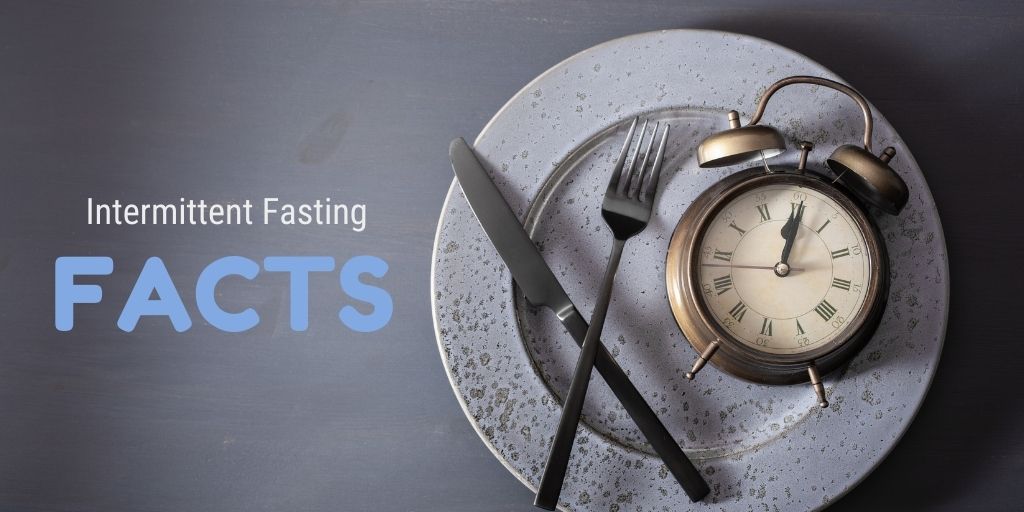If you’re a fitness freak and health is your top concern then you must be familiar with intermittent fasting already. IF (Intermittent Fasting) is more of a sustainable, reasonable and functional approach for losing weight and preventing diabetes in the long run. However it has its own benefits and drawbacks. Its actually, way too simpler method than the conventional dieting plans to slenderize. One of the interesting Intermittent Fasting fact is not about what to eat rather when to eat. It’s an eating pattern where you create a cycle between specific time period of eating and fasting. There are different variations or methods of this particular fasting plan:
- 5:2 dieting method is when you consume 400-600 calories on two nonconsecutive days weekly and the other five days you eat absolutely normal.
- 16/8 diet method is also known as Leangains diet protocol in which you skip your breakfast and restrict your daily eating schedule to 8 hours and then you fast for 16 hours straight.
- Eat-Stop-Eat method is fasting 24 hours, weakly once or twice which means you eat dinner one day until the next day’s dinner.
Interesting Facts of Intermittent Fasting

#1. IF modifies human body on physical level as well as hormonal, cellular and genetical level. It alters hormones, triggers cellular repairing process and changes genes and molecules increasing longevity of life.
#2. This fasting method is from prehistoric times which means humans when evolved to survive and thrive they used to farm, hunt to keep themselves alive, they had to go without food for many hours, even days. So, 5.8 million years ago, it was quite easier to maintain healthy weight.
#3. Intermittent fasting actually burns your body fat exactly like cardio workout does. An average person eats 4 times a day which also includes snacking and loads of snacking due to Internet, Television and other entertainment medias which means every time you eat your body runs on those calories without burning the actual body fat stores. But fasting for a prolonged time period actually burns the calories from your last meal and also starts burning from the store.
Benefits of Intermittent Fasting

#1. Helps in losing weight and visceral fat by increasing HGH levels and norepinephrine and lowering insulin levels which contributes in breaking down body fat. In short, IF increases body metabolism burning even more calories.
#2. Helps making your body oxidative stress and inflammation resistant by stabilizing free radicals which keeps your heart healthy.
#3. Enhances brain hormone BDNF (Brain-derived neurotrophic factor) which helps in triggering the growth of new nerve cells which protects against Alzheimer’s disease.
#4. Another interesting benefit of intermittent fasting is this method helps controlling blood sugar levels, blood triglycerides, blood pressure, total cholesterol and LDL.
#5. The increased metabolic rate induces the autophagy process which is a waste removal process on cellular level which makes your skin healthy and protects against diseases like Alzheimer’s and cancers.
#6. Increases life longevity by enhancing overall health quality as it reduces development of chronic diseases.
Drawbacks of Intermittent Fasting

#1. One of the most interesting drawbacks of intermittent fasting is weight gain. Interesting, isn’t it? When the methods of this fasting can actually be helpful but it can also lead to severe hunger pangs and craving leading to overeat and intake of loads of calories and junk. Which means, you gain weight after all these arduous efforts.
#2. Well, it might sound very simpler to achieve the purpose of the fasting but the process can act like a boomerang. When you stay without having food for a long period of time you are most likely to get severe headaches, nausea, dizziness and diarrhea.
#3. Severe intermittent fasting can lead to eating disorder which implies, you can go completely rogue over your diet. Your relationship with food might get hampered and you might also develop nutrient deficiencies.
#4. Lowered immunity can be a serious problem, when you opt for intermittent fasting diet plan. The less you eat the more problematic issues you develop regarding food which affects your digestive system leading weak immunity.
You may like this

